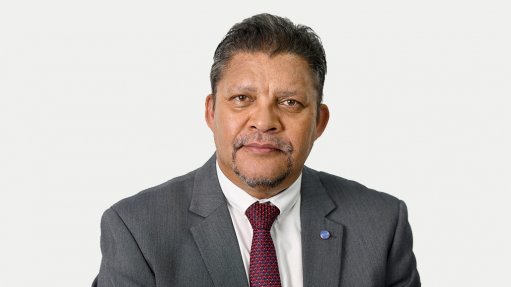
Chris Campbell
The CEO of the Consulting Engineers South Africa
Photo by: Consulting Engineers South Africa
Industry body Consulting Engineers South Africa (Cesa) CEO Chris Campbell attributes the decaying state of the construction industry in South Africa, and the resultant dearth of infrastructure development, to corruption and a lack of professional capacity, at a time when the country’s economy is close to flat lining.
“The construction industry is on its knees,” he comments, adding that there are hardly enough projects or significant investments taking place in the infrastructure development space.
He explains the current state of the economy is not providing an attractive platform for multinational companies to continue to do business in the country, which continues to negatively impact economic growth. “There is not much local work, and companies that can afford to look for work offshore are taking on a host of risks. Added to this, economic growth is stagnant - by now, we should have been experiencing at least 5% to 6% growth, but it is barely above 0%.”
Further, the pace of social infrastructure development is constrained by insufficient capacity in the public sector, particularly at a local government level, which is often linked to corruption and competence.
Another constraint is the lack of investment from the private sector: “The political and policy uncertainty, coupled with the high-level of crime in the country, including the matter of the construction mafia, has made investors nervous about how secure their investments could be, thus impacting capital flow into the country,” he adds.
Infrastructure Challenges
“The capacity and competency of engineering professionals in the public sector space, particularly at a local government level, remains a challenge with very few knowledgeable people to manage the roll-out of infrastructure development,” comments Campbell.
He gives the example that, in some cases, project engineers from consulting engineering companies are able to only secure project meetings with client project managers only after two months.
“In order to execute sustainable infrastructure development projects, technical knowledge and capacity to support such projects are critical not only for building new infrastructure but for maintenance as well,” adds Campbell.
Further, he adds that as a country, South Africa does well in planning policy and infrastructure development, but lacks in its ability to execute implementation or the start-up of key projects is relatively slow or delayed due to various challenges. “South Africa should be an ‘ongoing construction site’, driving all efforts to promote infrastructure development and maintenance.”
Projects to aid Infrastructure Development
“Cesa has been working on assisting government through the Development Bank of Southern Africa, in terms of capacity development. Although there have been a few hurdles in this regard, we continue to drive efforts to capacitate at a local government level. We have also worked with other entities in the past to address the capacity of skilled engineers with some success,” says Campbell.
There is a need for more people to act as custodians of infrastructure in local government while ensuring that the funds from the National Treasury are spent on social and economic infrastructure as a means of sustaining existing infrastructure, rather than spending the funds only when the infrastructure begins to fail.
“As Cesa, we will continue to avail ourselves as a private sector partner to collaborate and enhance the professionalisation of engineering skills in the country with government and other key stakeholders in the private sector. The private sector generally has a higher level of engineering professionals with tailored knowledge and work experience, who must continue to help turn the tide for infrastructure development with the aim to enable sustainable and robust economic growth in South Africa,” Campbell concludes.